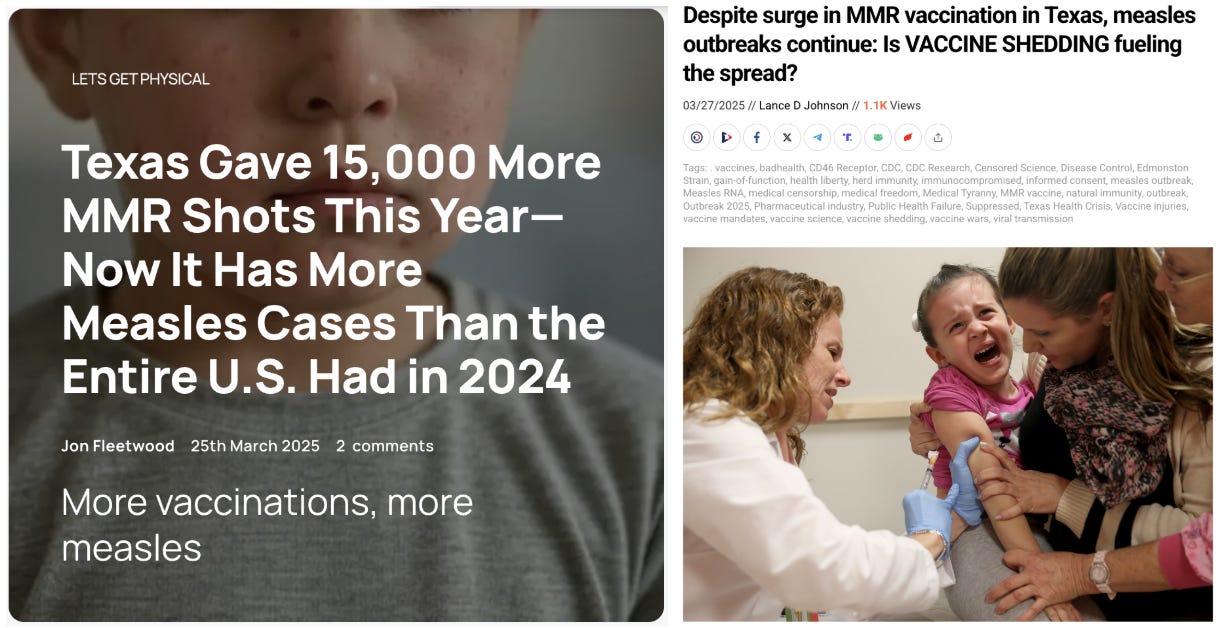Higher Measles Vaccination Rate Is Not Contributing to Texas Measles Outbreak, Despite Claims on Popular Websites
By John Gregory

What happened: Vaccine skeptics are falsely blaming the measles outbreak in Texas on the increased number of residents who have received the measles, mumps, and rubella (MMR) vaccine, making unsupported claims about “shedding.”
Context: Texas administered 15,000 more doses of the MMR vaccine in the first three months of this year compared to the same period last year, state health officials reported.
A closer look: Citing the spike in vaccinations, websites found by NewsGuard to publish false health claims assert that because the measles vaccine can “shed,” the increase in vaccinations is to blame for the ongoing measles outbreaks.
The claim appears to have originated on JonFleetwood.substack.com in a March 25 article that stated, “With a genetically modified vaccine virus capable of shedding for nearly a month and entering a broader range of human cells than the wild-type strain, the question becomes harder to ignore: Is the vaccine itself playing a role in the surge?”
The article was republished by Modernity.news (NewsGuard Trust Score: 7.5/100) the same day.
On March 27, Natural News (Trust Score: 5/100), a network of more than 490 websites that aggregates stories from NaturalNews.com, also picked up the claim, publishing an article titled, “Despite surge in MMR vaccination in Texas, measles outbreaks continue: Is VACCINE SHEDDING fueling the spread?”
Actually: There are more vaccinated people in Texas this year, but that’s because of rising concerns about the measles outbreak. Indeed, the Texas Department of State Health Services has been vigorously encouraging residents to receive the MMR vaccine due to the outbreak.
The department said in February 2025 that its testing found the state’s measles infections were not caused by the weakened strain of measles virus that is used in vaccines. Such weakened strains are “designed to create immunity without causing full-blown illness,” according to the website of Johns Hopkins Medicine (Trust Score: 77.5/100).
Out of the 400 measles cases identified in Texas, only two of the patients were confirmed to be fully vaccinated, according to TDSHS data published on March 28, suggesting that vaccines are not contributing to the outbreak.
An August 2024 study, published in the peer-reviewed Journal of Clinical Virology, found that genetic material from the weakened measles virus in the MMR vaccine can be shed by recently vaccinated people for up to 29 days after vaccination. However, Dr. Matthew Washam, the study’s co-author, told NewsGuard in a February 2025 email that this shedding is harmless and that the study does not suggest that the MMR vaccine can cause or contribute to measles outbreaks or spread measles to other people.


